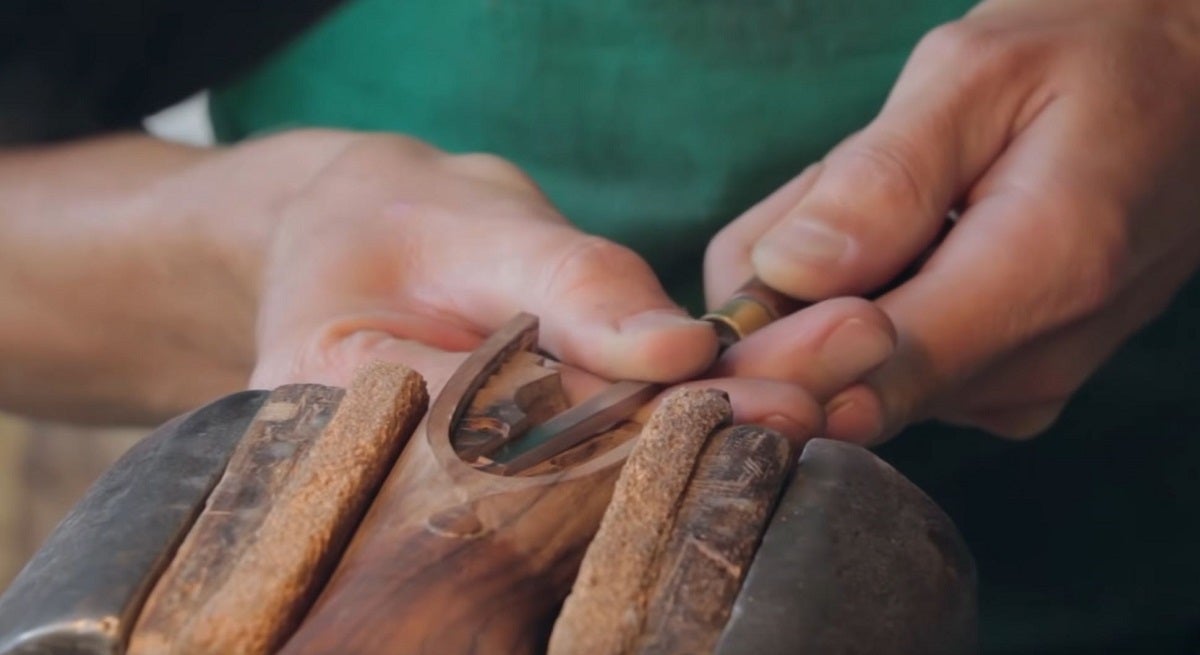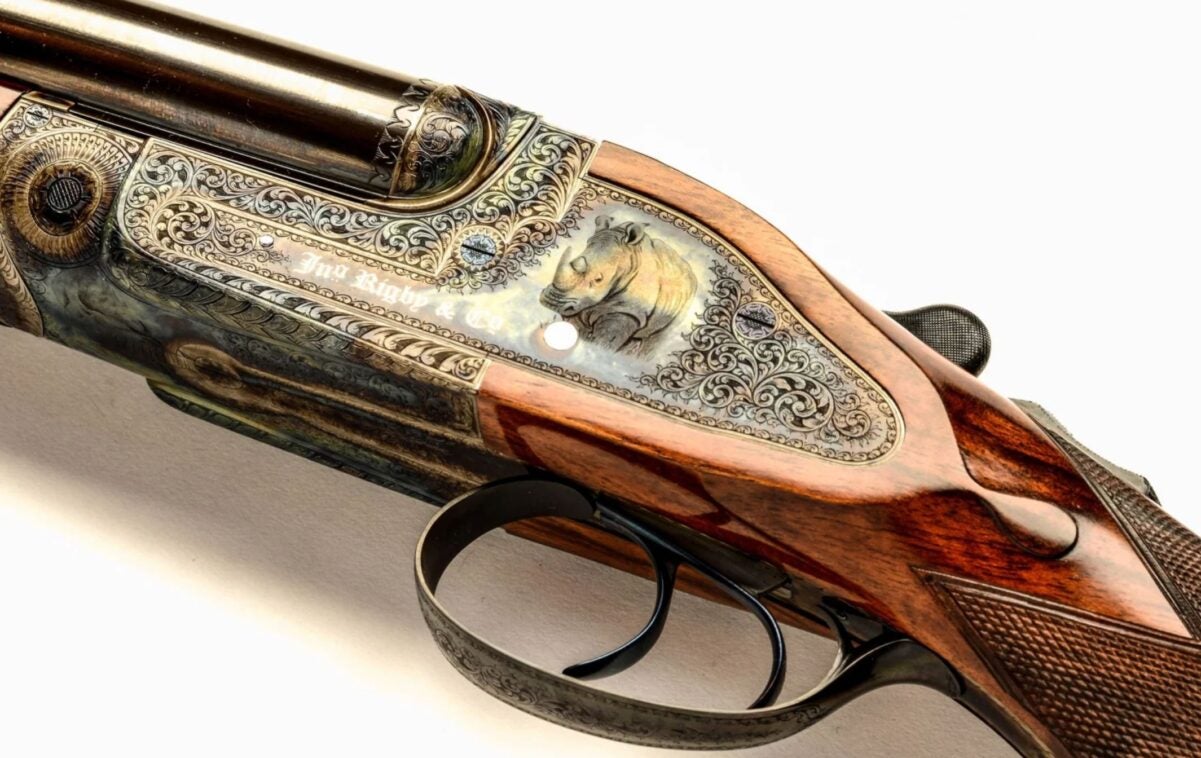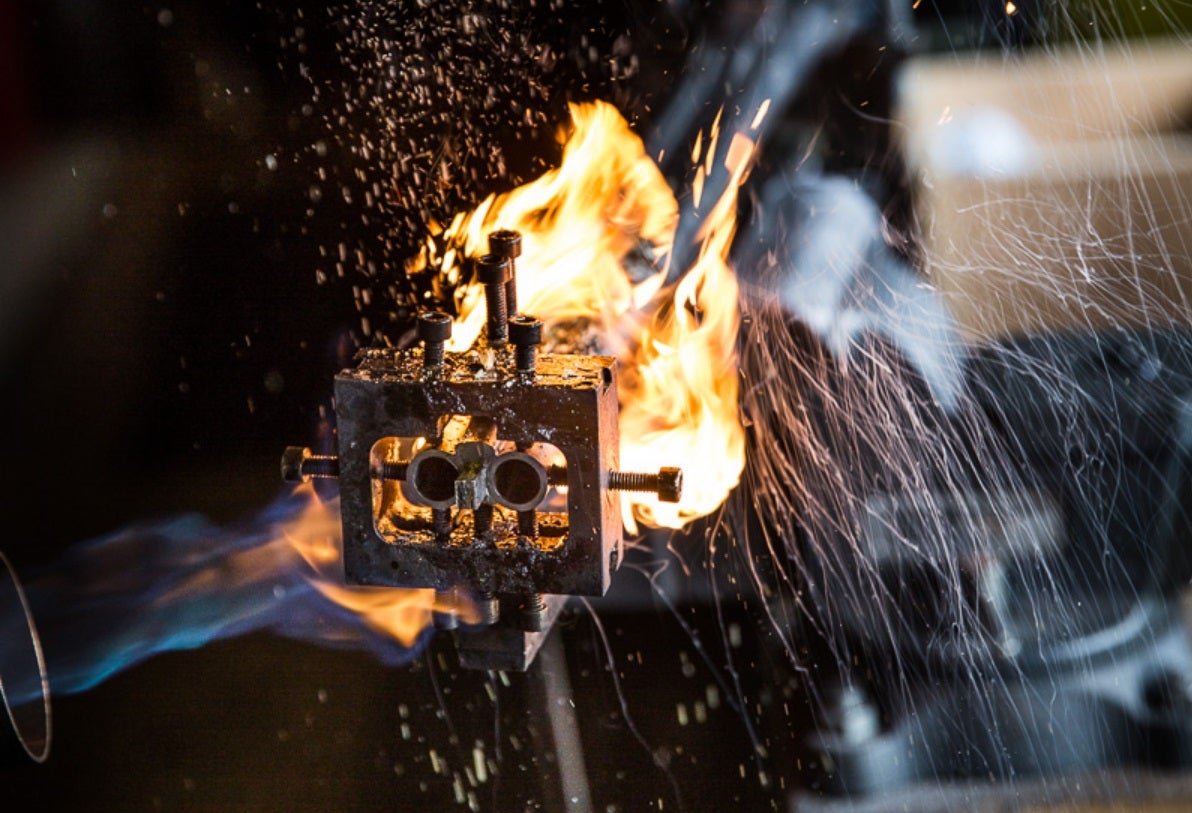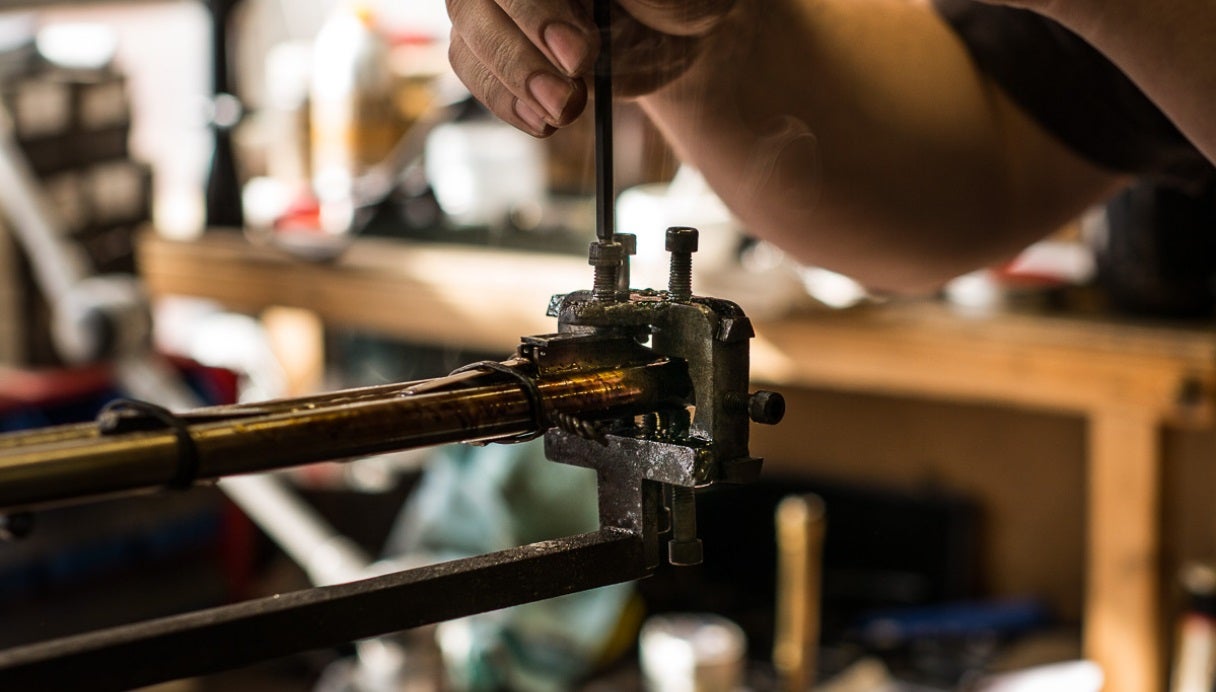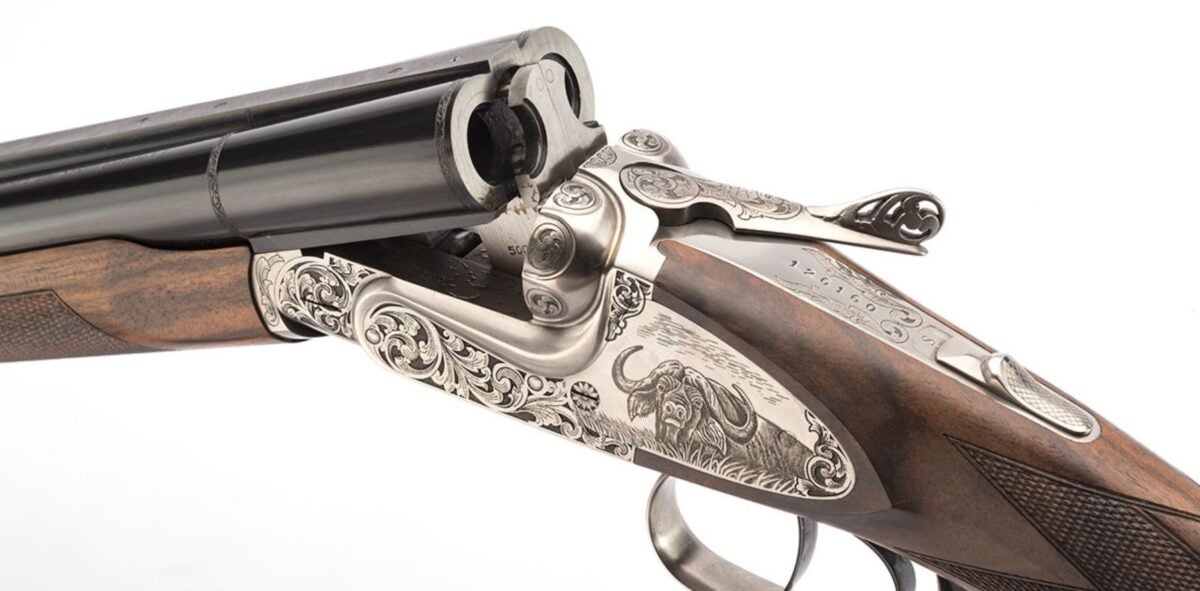Elephant Guns & Gentlemen’s Rifles! Why Are Double Rifles So Costly?
Travis Olander 12.20.23

Elephant guns. Gentleman’s rifles. Made almost exclusively to shoot straight-wall cartridges. Often mistaken for shotguns, but in some cases, as costly as a rare Ferrari auctioning at Sotheby’s. The double rifle is, per unit sold, the most expensive firearm in circulation today. But why? In the age of modern firearm manufacturing, a cheap AR-15 can afford sub-MOA accuracy with ammo sold at Walmart. Guns have gotten so accessible that any layperson can assemble a high-performance rifle atop their kitchen counter while they make a grilled cheese. No gunsmithing expertise – or even special tools – required.
Rifle Coverage on AllOutdoor
- AllOutdoor Review – The Best Rifle Chassis for the Money $$$ in 2023
- What is a Rifle Chassis? Why Bother Installing One?
- Grey Birch Manufacturing Introduces the La Chassis 700
- New Remington 700 Medium Action HNT26 Chassis from MDT
- [SHOT 2023] DD Pro Chassis Folding Stock Adapter for Delta 5 Pro

And it’s not like cheap guns exist that chamber all the fancy big game cartridges normally found in the bores of a double rifle don’t exist. A .375 H&H-chambered Winchester Model 70 runs about $1,500 – a quality gun, with plenty of accuracy and the reliability needed to stare down dangerous game with confidence. And yet, if you want twice the barrels to send not one, but two .375 H&H rounds at a Sub-Saharan trophy in frenzied rapidity, you could spend as much as $325,000. That’s what one Purdey Best Double Rifle costs at the moment.

“I’ll just browse Gunbroker for some used deals!” You might say. Sure, except you’ll find nary a discount. Even a double rifle chambered in .22 Hornet demands about $30,000. What gives?
Crafting Double Rifles is a costly Artform
In the manufacture of double rifles, everything is still done by hand. Although modern machinery has, to an extent, replaced analog tools, there’s still an artisan gunsmith with years – if not decades – of training and mentorship handcrafting each gun.
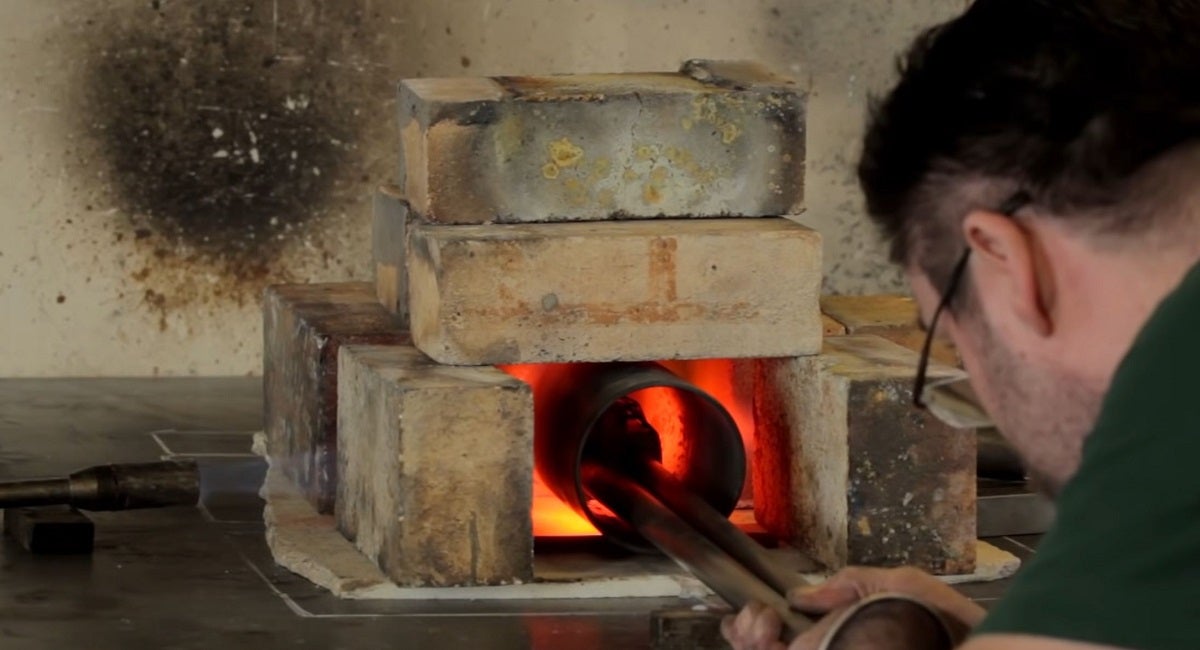
At Holland & Holland, every barrel set is made entirely with manual labor, one at a time. A smith first turns each barrel blank on a lathe, then extensive hand lapping is used to flatten the surfaces upon which both barrels will rest against one another. Finally, as illustrated above, the smith wraps two-barrel blanks together, applies flux and solder, and heats the assembly in a forge, mating the two barrels together. This fitting and forging alone takes days, but it’ll be weeks more before the finished gun is ready for delivery.
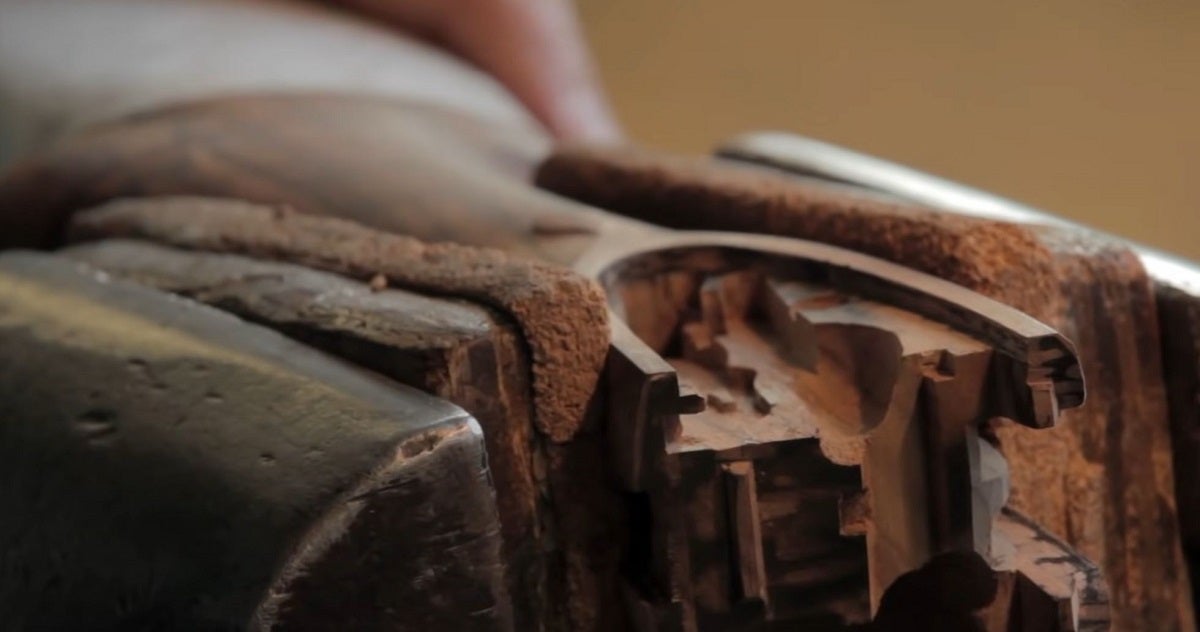
Typical long gun actions and receivers are cut and machined on CNC machines. The process is automated, allowing hundreds of receivers to be churned out on an assembly line every day. Yet when it comes to forming the action of a double rifle, yet more hand turning and machining is required. Each stock is cut, sanded, and shaped entirely by hand, too. It’s just one of the many other processes that require dozens of hours of manual labor.
But this level of meticulous craftsmanship isn’t just for looks, nor for demanding high prices. Double rifles produce some of the highest free recoil energy of any modern firearm. Many of the cartridges you’ll find in the bores of these guns produce over 10,000 lb. ft. of muzzle energy, with chamber pressures as high as 70,000 PSI. Capturing all that force in a break-action breech and wood accoutrements presents extra challenges.
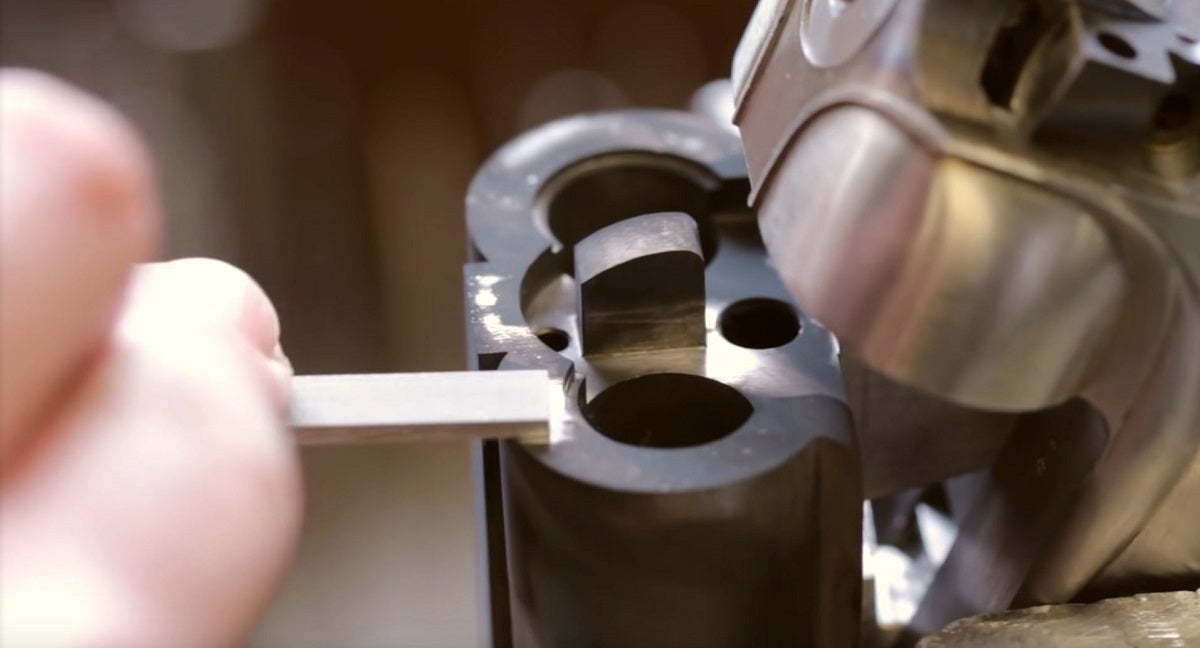
To ensure all that energy doesn’t run away and destroy the action or stock, perfect fitment from muzzle to shoulder is required. Like the stock fitment, breech fitment requires hours of hand lapping and polishing to ensure a perfect seal. Once functionality has been literally hammered out, there’s the question of presentation. Double rifles are as much pieces of art as they are firearms. Just observe one of John Rigby & Co.’s creations:
The engraving and case hardening of an action, staining and checkering of a stock, and inlaying of enamel, brass, silver and gold are common hallmarks of any double rifle – all yet more artisan work that can take months after initial manufacture is complete.
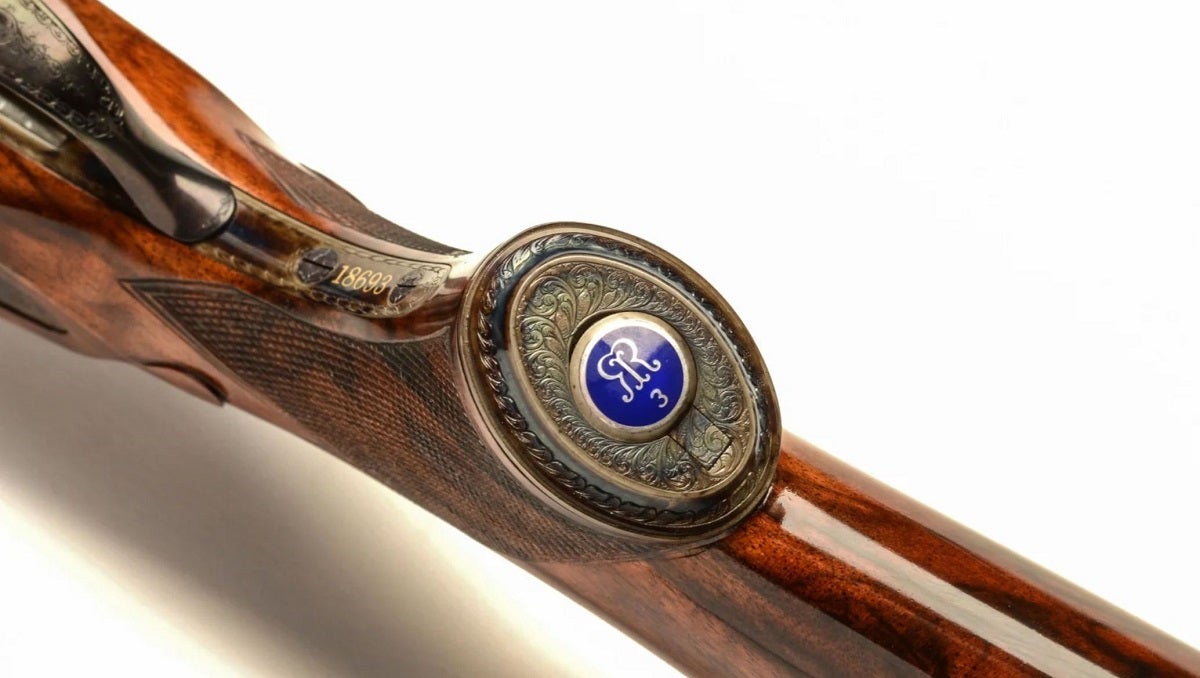
But making the double rifle is half the battle. This is functional art meant to drop dangerous game, so the demand for accuracy is far greater than expected with most other guns. But getting two barrels to strike an identical point of impact with a single point of aim, at a specific distance – a process called regulating – is yet another complicated, hours-long process that relies more on the experience, precision, and patience of the attending smith than any tool.
(Photo courtesy Rachel-Elizabeth Harris / Westley Richards)
Westley Richards, a double rifle maker in England, illustrates regulation in their factory. They’ve been making some of the most accurate double rifles in the world since 1812, and little has changed in their roughly two-hundred-years regimen. Just one man, Stuart Richards, trained by mentors for years, performs the factory’s work of regulating every rifle. Here, a pace of one rifle per week is considered brisk, and for good reason:
The regulating process requires adjusting each barrel about one-thousandth of an inch per shot group. To ensure each grouping reflects true point of impact, every round must be hand loaded with precise powder measurements. And in between each grouping, both barrels need to be heated to a temperature that melts their solder before any adjustments are made. With the solder in a fluid state, a jig is used to make microscopic changes to point of impact.
(Photo courtesy Rachel-Elizabeth Harris / Westley Richards)
Then, it’s a waiting game: The barrels must cool, allowing the solder to harden, and another shot group is sent downrange. Impact is recorded to confirm the effect of the adjustments, and the process repeats until point of aim matches point of impact for both barrels, with both rounds neither crossing nor diverging from the path of the other. Up to one hundred iterations have been required to confirm a gun shoots true.
Some of the Cost is still Product-as-Prestige
Not every double rifle costs as much as a single-family home. There are relatively affordable models that reflect the hours of handwork required to build just one of these guns, and little more – like the Big Five Classic Safari Rifle (above), from Italian maker Sabatti, which sells for between $8,500 and $10,000. While these prices approach five figures, they’re not prohibitively expensive for those willing to save or finance.
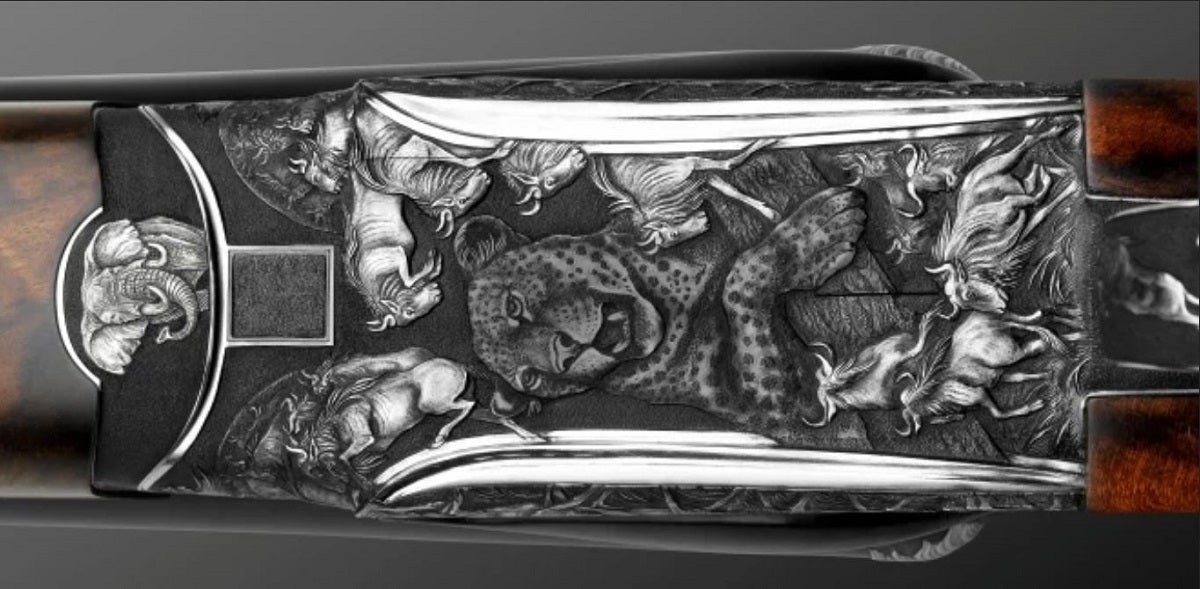
But some double rifles are like antiquities, mechanical watches, and mid-century exotic cars. They epitomize the upper crust’s obsession with products-as-prestige: Items that are, indeed, rare, valuable, and of a unique quality, yet appraised with prices meant to reflect the wealth of the owner. Like fine art, the cost of a named, one-off rifle may reflect the exclusivity of the thing, the complexity of the artwork atop its action, and the name of the craftsman who built it. Many of these six- and seven-figure guns will never be shot, but instead displayed in a glass case, or locked in a vault as an investment vehicle.
